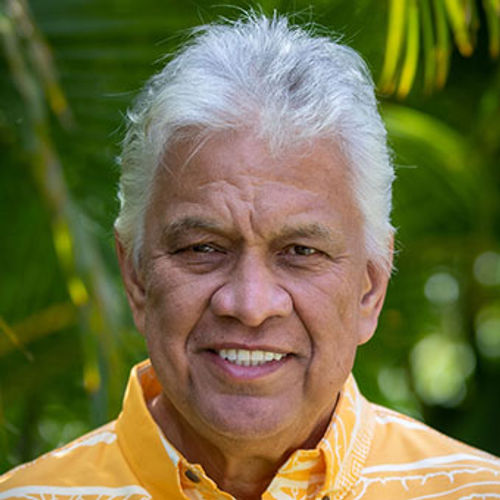
Tovin Lapan
What a difference three months can make.
When Hawaii Tourism Authority (HTA) president and CEO Chris Tatum announced on June 3 that he would be retiring at the end of August, the state's economic and tourism outlook was depressed but not dire. The Covid-19 pandemic and the state's 14-day quarantine for all arrivals virtually shuttered tourism, but the Aloha State boasted one of the lowest infection and death rates in the country. Daily new coronavirus cases were in the single digits, and there was hope that tourists could be welcomed back as early as July, saving the second half of the year.
• Related: Hopes are dwindling for a strong finish to 2020
But as John De Fries takes charge of the HTA reins starting Sept. 16, the situation has deteriorated. Since mid-July, Hawaii, particularly Oahu, has seen a dramatic spike in infections and has had to reimpose restrictions on businesses and public gatherings in order to get a handle on the spread of the coronavirus. A reopening plan that would allow out-of-state visitors to skip the quarantine if they test negative for coronavirus prior to travel has been delayed multiple times, and it is unclear if there will be any meaningful tourism to the state before the end of the year.
"Hawaii's pathway to economic recovery and enhanced community well-being will require unprecedented levels of focus, collaboration, cooperation, coordination and unified executive leadership throughout all sectors," De Fries said in a statement announcing his appointment.

John De Fries
Born and raised in Waikiki, the state's largest resort area, he is the first Native Hawaiian to lead the agency. He comes to the HTA with more than four decades of experience working in a variety of sectors related to tourism, including serving as executive director of the Native Hawaiian Hospitality Association. De Fries is also president of Native Sun Business Group, a business consulting and project management firm focused on hospitality and real estate development. He has a background in sustainable development, having previously led the Department of Research and Development for the County of Hawaii, which focuses on stimulating economic growth in sectors including tourism, agriculture and renewable energy.
"The board felt John would do an excellent job as HTA's new president and CEO, having generational roots in Hawaii and given his vision for the future, which is so needed in this time of the Covid-19 pandemic," said Rick Fried, chair of the HTA board of directors, which voted unanimously in late August to offer the position to De Fries.
Hawaii, which eclipsed 10 million visitors for the first time in 2019, was on an early pace for another record year in 2020 until the Covid-19 pandemic struck. As each month passes with no tourism, estimates from state economists on the recovery period have grown longer. Many analysts are predicting a slow buildup in 2021, with Hawaii's tourism numbers not fully rebounding for several years. Out-of-work residents; hotel and restaurant managers; and all those tied to the hospitality industry have grown frustrated as the state has seemingly taken two steps back for every step forward in its fight against Covid-19.
"I really think the HTA should take the lead when it comes to the issue of tourism," said Frank Haas, former HTA vice president of marketing. "They should work with the department of health and the government on ways to develop a safe travel program. They also need to work on communication, and getting the message out about how the industry will reopen safely. Under Chris Tatum, the HTA took a back seat, and he even said it's not a lead agency."
Haas said it's time for the HTA to get more involved and take a lead in developing a tourism plan, offering New York City as an example of a destination that put together a comprehensive plan for rebooting tourism while simultaneously getting its infection rate under control."
John has a tall order in front of him," Haas said. "The HTA should be laying the foundation right now for when tourism returns. You can't just sit back and wait to flip a switch. You need plans in place so when people are ready and travel is safe you have everything in place."
Tatum was an executive at Marriott for decades and stayed on the job at the HTA for roughly a year and a half. Hawaii hospitality observers applauded the choice of De Fries for his diverse background and history working with a variety of industries, organizations and government entities and hoped he would bring stability to the HTA, which was the subject of a critical state audit in 2018.
"I like the pick," said Elizabeth Churchill, a hospitality consultant and former Aqua-Aston chief revenue officer. "As the first Native Hawaiian to lead the HTA, that checks a big box that has been neglected for many years. He also has strong ties to sustainability, and that's a huge positive."
She also hopes the leadership changes marks a shift toward more communication, transparency and action from the HTA.
"We cannot seem to get out of our own way," she said. "There has been zero communication, haphazard decision making, and last-minute moves at all levels of government. The governor cannot make a decision, there is no strategic plan, the mayors are not handling things well, and a lot of these concerns filter to the HTA."
Many in the Hawaii hospitality industry are hoping the development of a rapid-result saliva test for coronavirus will help spur the reopening of tourism, and Churchill, who noted a Hawaiian company, Oceanit, is working on such a test, said she'd like to see the HTA support the process with funding or other resources.
Hawaii has long prided itself on being one of the safest destinations in the world, and when the state's coronavirus infection rates were low many said that would be a key selling point when reopening to tourism. Now, that distinction is slipping away, and many feel the lack of communication and planning from the HTA will hinder progress. Both Haas and Churchill agreed the HTA should be diving into consumer research now to be prepared for how to best market the destination when the reopening is approved.
"In my personal opinion, I'm pretty much writing off 2020, and I think it will be a gradual build up in 2021," Haas said. "It's a tough market, and I think a lot of research is needed to figure out the best approach and lay the groundwork for a gradual comeback, including shifting marketing emphasis in some areas. For example, there will likely be less long-haul travel and more visitors from closer markets."
Haas said Hawaii and its tourism industry have been through troubled times before, but the crucial element was finding opportunity in the upheaval.
"This too shall pass," he said. "It's a tremendous crisis, but Hawaii tourism has shut down before, like during World War II. It always comes back. We have a wonderful product that people dream about, and it will come back. We just have to manage the recovery as best we can."